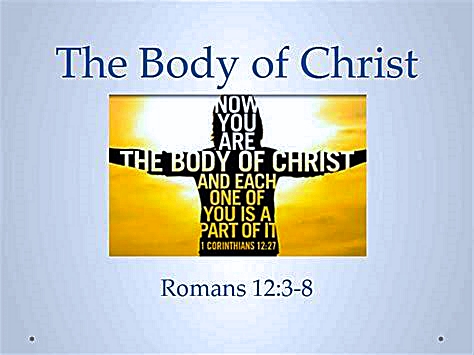Body Ministry – BT17: What else was the early Church devoted to doing together?

Body Ministry – BT17: What else was the early Church devoted to doing together?
Please follow the BLOG Etiquette to stay on topic and pass the moderator’s check. Bold, underlined text below = future links to the BLOG pages.
According to Acts 2:42, the earliest Church “had been routinely/habitually proskartereo ‘moving-toward enduring, persistent, steadfast strength of DEVOTION despite difficulty’ in the didache teaching/doctrine of the apostles and/coupled the koinonia intimate/communal fellowship – the breaking of bread (a), and/coupled the prayers (b).” They were in unity because of this simplicity of their DEVOTION: “routinely/habitually proskartereo ‘moving-toward enduring, persistent, steadfast strength of DEVOTION despite difficulty,’ with one accord (in unity), to conversational-prayer (b)” (c). <Notes> a) this was the Lord’s Supper and the concurrent love feasts, b) proseuche: watching, listening, waiting conversational-prayer but since it’s plural, likely also includes deesis supplication-prayer, though often these are separated: Ephesians 6:18; Philippians 4:6; 1 Timothy 2:1, 5:5; Hebrews 5:7, c) Acts 1:14.
Even the apostles in Acts 6:4 had to make a choice of what to be DEVOTED to: “We will proskartereo ‘moving-toward enduring, persistent, steadfast strength of DEVOTION despite difficulty’ ourselves to proseuche conversational-prayer and/coupled to the service/ministry of the [gospel] logos message.” Obviously, you have to hear from Jesus, who the Logos Message per John 1:1 to preach His logos message per Ephesians 1:13. Even husbands and wives need to do this (a). In Acts 12:12, we find many gathered in a house proseuchomai conversationally-praying – that’s all they were doing, having a conversation with God, but together. That’s simplicity! <Notes> a) 1 Corinthians 7:5.
Now later in Acts 2:7-12, we see that the reason for gathering on the 1st day of the week was for breaking bread, but Paul used it to say goodbye before his journey and he ended up rambling way too long, but the context makes it obvious that “prolonged speeches” weren’t the norm! Oh, that the modern church would return to its roots! Some churches today want to have one preacher after another preach all day, and they think that would be revival! I heard a “revival expert” at a church say this! But that’s not what you see in actual revivals, except maybe preaching the gospel from tree stump to tree stump, dock to dock, and tent to tent!
From Act 4:23-31, the congregations were begging God to give them boldness to speak the [gospel] logos message of/belonging-to The Truth (Jesus, per John 14:6), while God brought signs & wonders – and they got this prayer answered because God shook the place and filled them by the Holy Spirit so they could continue to speak the [gospel] logos message of The Truth of God with boldness! Maybe our churches are praying for the wrong things!
According to Hebrews 10:25 it was to “be routinely/habitually encouraging-close-beside (b) [reciprocally one to another] and so much more greatly as you see ‘the Day’ [of Christ’s return] drawing very-near/close (a).” Now that’s encouraging church koinonia fellowship! In Acts 14:27, we see missionaries declaring to the congregation all that God had done with them. I think in 40 years I’ve only seen this twice and they kept it short, because the so-called “leaders” had so much else to do in their schedule. <Notes> a) eggizo: approaching God to join or commune with Him, a common Hebrew idiom for prayerful worship – Hebrews 7:25; James 4:8, b) parakaleo.
How about finding consensus within the Body-of-Christ? In Acts 15:1-29 you see a large gathering of the apostles and elders to discuss decisions to make, and this is where they listened to testimonies of God’s confirming actions, but then they made sure these decisions were “good with the whole church” and “good to the Holy Spirit” (a) before finalizing them. When’s the last time you saw the whole church discuss issues, listen to testimonies, and then consult the Holy Spirit so that everybody was “on board?” Churches want unity but they don’t do what is necessary for unity. <Notes> a) that means they must have ALL asked and listened for the Spirit.
We also see this “consensus or agreement” taught by Jesus in Matthew 18:19-20, “For where 2 or 3 are gathered in My name/authority, there am I among them, so if even 2 of you agree on earth about anything you ask, it will be done for them by My Father in heaven.” Jesus never talks about Church meetings being large but instead intimate, and here He talks about what to do in them. Does your church do that?
Finally, when is the last time you saw prophets taking turns giving their revelation and the rest of the Body-of-Christ “weighs (a) in what was said” so that “ALL may ongoingly learn/understand the key/essential information (b) and/coupled ALL ongoingly are encouraged (c)” (d)? When is the last time you have seen that in church? <Notes> a) diakrino: to thoroughly judge thru-the-realizing-channel-of investigating or discriminating by close-reasoning, back and forth between each other in context, b) manthano, c) parakaleo, d) 1 Corinthians 14:27-40.
Spiritual Education, Body Ministry, The early Church was Devoted to only a few things, Devotion to the Apostle’s gospel NOT scripture, Conversation-Prayer was the most common Devotion of early-Church and only one stated as God’s Will, Lord’s Supper koinonia communion and Love Feast koinonia fellowship, Early Church consensus with the Spirit before decisions, Each member taking turns with their prophecy tongues or teach and others weighing in


